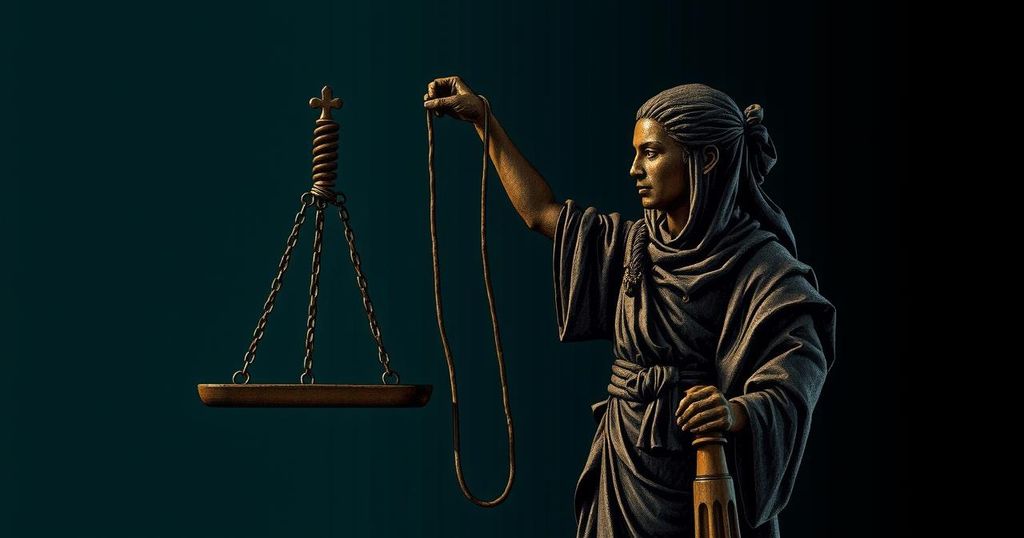Amnesty International urges that perpetrators of human rights violations during the Indonesian occupation of Timor-Leste must not escape justice. As the UN Security Council plans to withdraw peacekeeping forces, concerns about accountability for past atrocities, including the Santa Cruz massacre, remain paramount. No individuals have been imprisoned for these crimes, prompting calls for the international community to uphold the promise of justice for the victims.
Amnesty International insists that the offenders of grave human rights violations committed during the Indonesian occupation of Timor-Leste must be held accountable, particularly as the UN Security Council prepares to deliberate upon the withdrawal of the UN peacekeeping mission. During the occupation from 1975 to 1999, Indonesian military forces and their affiliates were implicated in heinous human rights abuses, including unlawful killings, enforced disappearances, sexual violence, and torture. To date, none of these crimes, which qualify as crimes against humanity, have resulted in any convictions in either Indonesia or Timor-Leste. Isabelle Arradon, the Deputy Director for Asia-Pacific at Amnesty International, stated, “The fact that the UN is leaving Timor-Leste does not let the international community off the hook. Delivering justice for victims of these horrendous crimes must remain a priority.” The UN Security Council is scheduled to convene on November 12 to finalize plans for the upcoming withdrawal of the UN Integrated Mission in East Timor (UNMIT), established in 2006. This date is notably the anniversary of the Santa Cruz massacre of 1991, when Indonesian soldiers attacked approximately 3,000 peaceful protesters in Dili, resulting in numerous fatalities, thus underscoring the urgent need for accountability. “The Santa Cruz massacre was a watershed moment in the Timorese struggle for independence that highlighted the brutality of the Indonesian forces. The blatant lack of accountability for these killings is shocking,” Arradon remarked. Despite over 300 individuals charged with crimes against humanity evading justice, Indonesia has refused to cooperate with UN-led efforts for justice in Timor-Leste, including the extradition of its nationals for trial. Furthermore, the 18 individuals tried by the ad hoc Human Rights Court in Jakarta were acquitted following an appeal, undermining justice for the victims. Amnesty International asserts that it is imperative for the UN to unequivocally state that no impunity shall exist for the crimes committed during the Indonesian occupation and during the 1999 referendum. It is crucial that justice for Timor-Leste remains a priority on the UN Security Council’s agenda post the peacekeeping force’s departure.
The context of this discussion pertains to the Indonesian occupation of Timor-Leste from 1975 to 1999, a period marked by significant human rights abuses perpetrated by Indonesian military forces. The aftermath of the occupation has led to calls for justice and accountability for widespread atrocities including unlawful killings, enforced disappearances, and torture. Despite the establishment of temporary mechanisms for justice, there has been a consistent lack of accountability for the perpetrators, many of whom remain at large, particularly in Indonesia. As international oversight, especially via UN peacekeeping missions, diminishes, the spotlight is on the need for sustained efforts to ensure justice for victims of these historic crimes.
In conclusion, the call for accountability regarding the human rights abuses committed during the Indonesian occupation of Timor-Leste underscores the ongoing struggles for justice faced by the victims’ families. As the UN peacekeeping mission prepares to withdraw, international bodies and the UN Security Council must prioritize the issue of impunity and ensure that efforts for justice continue to have relevance in the global arena. Without action, the legacy of human rights violations may persist, leaving victims without the justice they deserve.
Original Source: www.amnesty.org






